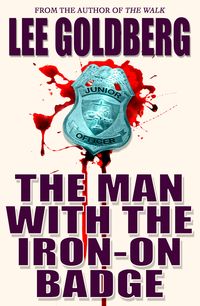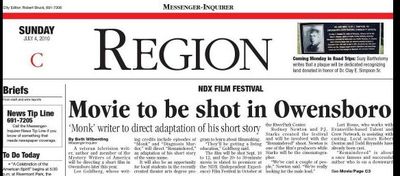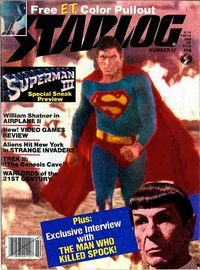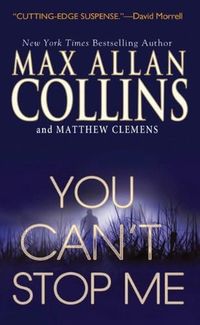There's a new interview with me up at the Kindle Author blog. Here's an excerpt:
DAVID WISEHART: You've had a successful TV writing career, and strong sales as a traditionally published mystery writer. Why publish on Kindle?
LEE GOLDBERG: I haven't published anything specifically for the Kindle yet—just my out-of-print work. So for me, it's a no-brainer. I'm making money on stuff I've already written and that wasn't earning for me any longer. But I have exhausted my back-list now…
Would I write something original for the Kindle? If I can't sell my next original novel to a major publisher, and it came down to a choice between going with a very small press or taking it to the Kindle myself, I would probably go with the Kindle, simply for financial reasons. I'm sure I could make a lot more money with Kindle publication over, say, the fine folks at Five Star, though it would mean losing some tangible benefits. Five Star books are respected, reviewed by major publications, stocked by libraries, and are eligible for all the big awards…while self-published books don't get much respect (often for very good reason), are not reviewed, are ineligible for major awards (something I understand and accept, having helped craft the eligibility rules for the Mystery Writers of America). All that said, I may test the Kindle waters with an original novella this fall.
DAVID WISEHART: What advice would you give to a first-time writer thinking of publishing on Kindle?
LEE GOLDBERG: Don't do it. I still think selling your book to a publisher, and getting wide distribution in brick-and-mortar stores, is the way to go…and will always be my first choice. You benefit from having an editor, a marketing team, a sales department, and nationwide visibility. I don't think self-publishing is a wise move for novice writers/aspiring novelists…for all kinds of reasons[…] Too many of them do it because they can't get their work published and, I hate to say it, in most cases there's a good reason for it—their books suck. They see self-publishing on the Kindle as a short-cut….or as a gold mine…and its neither. They look at success stories like Joe Konrath and Boyd Morrison and assume the same thing will happen to them. It probably won't.
I have sampled hundreds of self-published books on the Kindle… and 99.9% of them aren't just awful, they border on illiterate, as if they were written by people who never graduated high school. It's astonishing just how terrible the stuff is. Putting unprofessional, hideous crap on the Kindle *will* hurt your career. You only have one chance to make a first impression with readers, agents and publishers. That said, at least self-publishing on the Kindle doesn't cost you anything (if you don't count cover design, which you could do on your own, or hiring a professional editor) and cuts the vanity press scammers entirely out of the equation.







